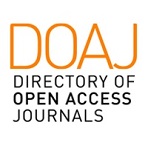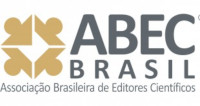Ethical Standards
Revista Brasileira de Psicodrama (RBP) is committed to high standards of ethical behavior at all stages of the publication process according to procedures established by international institutions like: Principles of Transparency and Good Practice in Academic Publications recommended by the Committee on Publication Ethics, the Directory of Open Access Journals, the Open Access Scholarly Publishers Association, the World Association of Medical Editors, the FAPESP’s Code of Good Scientific Practice and SciELO Guidelines on Best Practices for Strengthening Ethics in Scientific Publication.
These procedures apply to the management of the journal and its editorial practices with an emphasis on relations with authors and especially in the evaluation of their manuscripts.
All content of RBP is subjected to peer-review. RBP does not charge fees for the submission or processing of articles. The manuscripts will be received by the editorial secretary who initially will verify the similarity of the content (plagiarism) using the iThenticate system. For manuscripts with no or low content of similarity, a Section Editor (SE) will be assigned. The SE will appoint 2 to 4 external evaluators (ad hoc referees) in double-blind peer review mode, ensuring complete anonymity. From 2020, manuscripts submitted previously or in parallel to the preprint platforms will be accepted for evaluation, and the RBP may adopt open peer review with prior consent from authors and reviewers.
The ad hoc referees should have no conflict of interest and must be committed to a fair judgment. Their findings should be objective, pointing out relevant published work that is not yet cited and must treat the articles confidentially.
After receiving the evaluations, the SE must give a decision about the manuscript addressing the evaluator’s recommendations. The SE can accept the manuscript in the form it was submitted; can reject it or request revisions. The manuscript that requires revision will be sent to the author, who is supposed to submit a new version and a letter to the Editor, where each recommendation of the evaluators should be commented. The additional paragraphs should be highlighted. In the case the author does not agree with the evaluator’s suggestions, it is necessary to explain the reasons. After verifying the adherence to the recommendations in the new version, the SE should give the final decision or, exceptionally, send to another evaluation round if the changes have not been sufficiently addressed. The entire process is available to the authors at any moment. In the cases the authors do not agree with the final decision, it is allowed to appeal on the decision by sending an email to the Editors in Chief, who will review the process and may reconsider, if justified.
Articles that contain seriously flawed or erroneous data such that their findings and conclusions cannot be relied upon may be retracted in order to correct the scientific record. Additions, Corrections, and Retractions may be requested by the author(s) or initiated by the Editor after discussions with the corresponding author. Readers who detect errors of consequence in the work of others should contact the corresponding author of that work. All Additions, Corrections, and Retractions are subject to approval by the Editor, and minor corrections and additions will not be published. The corresponding author should obtain approval from all of the article coauthors prior to submitting an Additions, Corrections, and Retractions or provide evidence that such approval has been solicited. Additions, Corrections, and Retractions will be containing information about the original article title, author list, and the reason for the retraction. The originally published article will remain on the web except in extraordinary circumstances.
All authors must have significantly contributed to the research. RBP endorses the CRediT taxonomy of contributor roles and the Author Contributions section for manuscripts accepted will be required to the roles: Conceptualization; Methodology; Investigation, Writing – Original Draft; Writing – Review & Editing; Funding Acquisition; Resources; and Supervision.
Authors of accepted articles must include the financial support received for the elaboration of the manuscript in the copyediting step. The funding agency should be written out in full, followed by the grant number. If the research is not funded by a specific project grant include this information: This research received no specific grant from any funding agency in the public, commercial, or not-for-profit sectors.
The authors are forbidden to publish the same research in other journals.









1.jpg)




